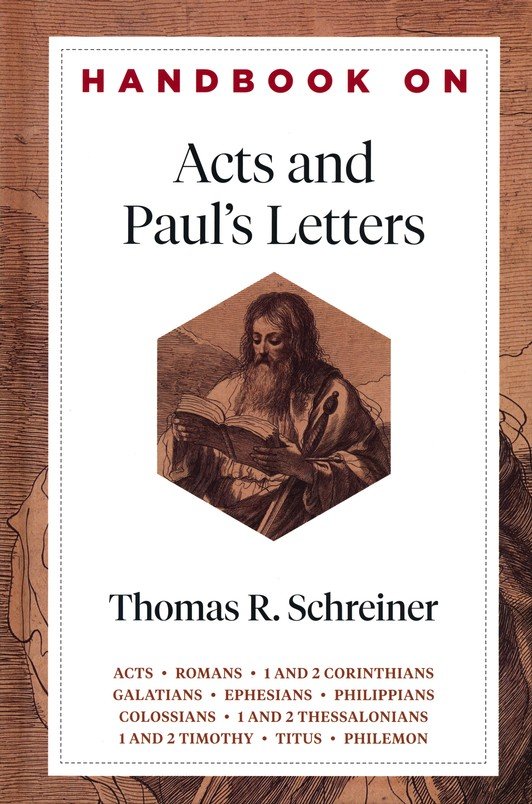A Brief Book Summary from Books at a Glance
By Mark Baker
About the Author
Thomas R. Schreiner (PhD, Fuller Theological Seminary) is James Buchanan Harrison Professor of New Testament Interpretation and professor of biblical theology at Southern Baptist Theological Seminary. He has written and edited many books including The King in His Beauty and commentaries on Romans and Galatians.
Overview of the Book
As a “handbook,” this work seeks to provide a middle-of-the-road option between a commentary and an introduction. Commentaries provide a “deep dive” into verse-by-verse exposition of a biblical book, while introductions often skim quickly across the surface. This handbook seeks to avoid the complexity of a commentary while providing more nuance than an introduction.
Table of Contents
1 The Acts of the Apostles
2 Romans
3 I Corinthians
4 II Corinthians
5 Galatians
6 Ephesians
7 Philippians
8 Colossians
9 I Thessalonians
10 II Thessalonians
11 I Timothy
12 II Timothy
13 Titus
14 Philemon
Summary
Chapter 1: The Acts of the Apostles
The book of Acts is probably best organized by the summary statements that conclude its various sections. These sections often include geographical detail about the spread of the gospel (e.g. Acts 6:7; 9:31). Other sections refer to the importance the word of God in the gospel mission (e.g. Acts 12:24; 19:20). Finally, other sections indicate the growth or expansion of the word as the gospel mission advances (e.g. Acts 6:7; 16:5). Connected to all of these points is the theme of kingdom, which plays “a central role in the book” (5). Acts starts with the question of when the kingdom would be restored to Israel (1:4–5), and it concludes with Paul preaching freely in Rome, a sign that “teaching about Jesus fulfills the promises of God’s kingdom” (45).
Chapter 2: Romans
Romans is the most important letter for understanding Paul’s theology (53). Paul wrote this magisterial letter while preparing to travel to Spain for his next missionary journey. Throughout the letter, Paul focuses on issues pertaining to Jews and gentiles (54). Romans 1:16–17 explains the theme of the letter: in a world obsessed with honor and shame, Paul is not ashamed of the gospel because it saves both Jew and gentile from the wrath of God that will be poured out on the last day. Both Jews and gentiles have fallen short of the glory of God (Rom 3:23), but both can also be justified through faith, as Abraham did. Adam’s sin had great impact on the rest of humankind; nevertheless, all men die because all men sinned (Rom 5:12; not Augustine’s rendering in whom).
[To continue reading this summary, please see below....]The remainder of this article is premium content. Become a member to continue reading.
Already have an account? Sign In
